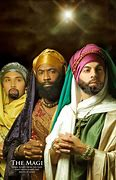January 18, 2022
 The story of the wise men in Matthew 2 offers us some important lessons. One lesson I glean is that God will step outside of tradition and will use anyone to accomplish God’s purposes. These men according to historical sources were of Persian descent and were highly respected people who studied the stars. They could have been either astronomers or astrologers. What is important is that they were not Jewish. They may have had some knowledge of Judaism, but they were not observers of the Jewish faith.
The story of the wise men in Matthew 2 offers us some important lessons. One lesson I glean is that God will step outside of tradition and will use anyone to accomplish God’s purposes. These men according to historical sources were of Persian descent and were highly respected people who studied the stars. They could have been either astronomers or astrologers. What is important is that they were not Jewish. They may have had some knowledge of Judaism, but they were not observers of the Jewish faith.
Using non-Jews in this story tells us that God will step out of our box, move outside of our comfort zones, go where we won’t go, and reveal Godself to people who we wouldn’t think God would appear. From their knowledge of stars, they knew that this was no ordinary star. They knew that this particular star indicated that something special had occurred. To them, it meant the birth of a king, in particular, the king of the Jews. It was so important to them that they decided to leave their homes and make the journey to Judea. The birth of Jesus was so special that Gentiles (non-Jews) far removed from Judea and its ways, politics and issues were affected in a tremendous way.
Rev. Dr. Amariah McIntosh, GACIER representative from the CME Church
Daily Readings
Morning Psalms 123; 146
First Reading Genesis 9:1-17
Second Reading Hebrews 5:7-14
Gospel Reading John 3:16-21
Evening Psalms 30; 86
Today’s Focus: Week of Christian Unity
Let us join in prayer for:
PC(USA) Agencies’ Staff
David Heilman, Director, Enterprise & Applications, Information Technology, Board of Pensions
Courtney Hemmelgarn, Senior Administrative Assistant, Office of the General Assembly
Let us pray
Thank you for being a God of inclusiveness that reaches beyond our borders and brings people from every nation to you. Teach us to be accepting of all even if they don’t worship as we do. Amen.
![]() You may freely reuse and distribute this article in its entirety for non-commercial purposes in any medium. Please include author attribution, photography credits, and a link to the original article. This work is licensed under a Creative Commons Attribution-NonCommercial-NoDeratives 4.0 International License.
You may freely reuse and distribute this article in its entirety for non-commercial purposes in any medium. Please include author attribution, photography credits, and a link to the original article. This work is licensed under a Creative Commons Attribution-NonCommercial-NoDeratives 4.0 International License.